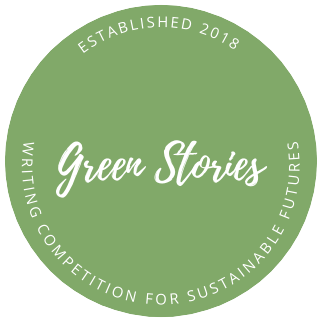Climate change is getting serious and we need to step up our pace of change. A radical but hugely effective solution would be for everyone to have a personal carbon allowance. So just like managing a financial budget, we’d be expected to live within a carbon budget. The 3 minute video below gives a good summary.
Your transactions, journeys and purchases would use up your carbon allowance. This benefits green behaviour and would drive innovation into sustainable products and business models. Individuals would choose products and services with a lower carbon footprint, or prefer to borrow, repair or re-use rather than new. Companies would then be incentivised to provide greener products and services, for example by sourcing their energy from renewable sources, designing green products, making it easier to borrow rather than buy or providing easy repair options.
This idea is an alternative to green taxation. Although green taxes allow more individual freedom, they make environmentally harmful behaviour the privilege of the rich. A personal carbon allowance is more equitable – like a kind of rationing as everyone has the same carbon allowance which is fairer, but there is still room to manoeuvre if you allow unspent carbon to be sold to those who need more than they have. Hence when others have run out of carbon, they can buy some of the leftover carbon from those who aren’t using as much.
Currently carbon trading, pricing and offsetting exists but mostly at the company/country level as opposed to individuals, however extending these ideas to individuals to create a kind of carbon-based currency would be transformational. Personal Carbon Allowances didn’t catch on when they were first proposed around 2007, but now the climate crisis is becoming more urgent and we can better measure the carbon footprint of products, services and activities, they make a lot of sense. See https://www.theguardian.com/sustainable-business/personal-carbon-allowances-budgets
Story Ideas around Personal Carbon Allowances (PCAs)
‘The Carbon Diaries’ by Saci Lloyd is a great book aimed at young adults set against the backdrop of carbon rationing. Her book is a little dystopian and the carbon ration is centre stage, but you could set any kind of plot – romance, whodunit, family drama – against a backdrop of personal carbon allowances (PCAs). This allows you as a writer to introduce the idea to readers and help to normalise it at the same time as highlighting behaviours that would use up a lot of carbon and those that wouldn’t. For example, think of all the plots centred on money – trying to get it, steal it, obtain by fraud – if you consider personal carbon allowances as an alternative form of currency then you can adopt similar plots but with the PCA at the centre rather than money.
Personal Carbon Allowances would lead to a more equitable society. If you were poor but green, you could profit by selling excess carbon credits to those who are short of carbon credits. On the other hand, what would it be like to be wealthy yet find that your money now has a very limited ability to get you what you want? If the system is more stringent and more like rationing (as during war time), then it’s pointless having money if you don’t have enough carbon credits. The prestige and privileges associated with wealth would quickly disappear. It could be fun to explore the changing fortunes of your characters who are all variously affected.
You could extend the idea to include social factors as well as environmental ones. For example all products and services could be rated green, orange or red depending on whether they were manufactured in good or bad working conditions and with good or bad environmental impact. So a character might hear on the news for example that a mobile phone supplier is now upgraded because they have improved their worker satisfaction rates, or addressed their planned obsolescence issues.
If you remove the ability to purchase carbon credits then the personal carbon allowance becomes a kind of rationing. This is arguably fairer – but the moment rations or allocations are introduced you are likely to get some kind of black market, and again this can be a focus for the plot or a sub-plot in the background.
Your plot doesn’t have to centre on personal carbon allowances, it could just be part of the everyday backdrop, just as money is currently. Perhaps your hero or heroine could have to use a lot of energy as part of the plot and then have their carbon credit card declined and need to justify getting more carbon credits.

